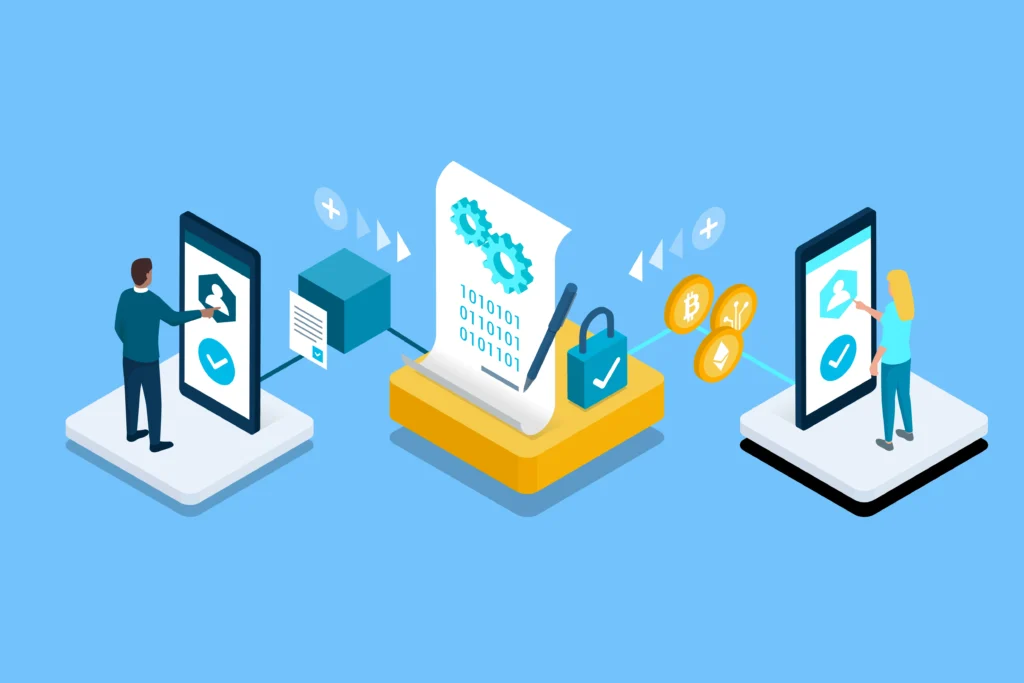Blockchain technology has revolutionized the way we store and transfer digital assets, providing a decentralized and immutable ledger system. At the heart of many blockchain networks lies the concept of validation, which ensures the integrity and security of transactions. In this article, we delve into the crucial role of validators in blockchain networks. We examine their functions, responsibilities, and impact on the reliability of distributed ledgers.

Understanding Validators
Validators are essential participants in blockchain networks responsible for verifying the validity of transactions and maintaining the integrity of the ledger. Unlike miners, whose primary role is to create new blocks and secure the network, validators focus on confirming transactions. They also work on achieving consensus among network participants.
Key Characteristics of Validators:
- Network Participation: Validators actively participate in the operation and governance of blockchain networks by running network nodes and validating transactions. They contribute computational resources and bandwidth to support the network’s operation and ensure its security and reliability.
- Decentralization: Validators operate independently of centralized authorities or intermediaries, distributing trust across the network. Decentralization enhances the security and resilience of blockchain networks by eliminating single points of failure and reducing the risk of censorship or manipulation.
- Consensus Mechanisms: Validators play a crucial role in achieving consensus among network participants on the validity of transactions and the state of the ledger. Different consensus mechanisms, such as Proof-of-Work (PoW), Proof-of-Stake (PoS), and Byzantine Fault Tolerance (BFT), employ varying methods to select validators and validate transactions securely and efficiently.
Functions and Responsibilities of Validators:
- Transaction Validation: Validators validate transactions by verifying their authenticity, integrity, and compliance with network rules and protocols. They examine transaction signatures, check for double-spending attempts, and ensure that transactions meet the criteria for inclusion in the blockchain.
- Block Proposal and Creation: In some consensus mechanisms, such as PoS and BFT, validators take turns proposing and creating new blocks to add to the blockchain. Validators compete for the opportunity to propose blocks based on their stake or reputation within the network. Once selected, validators construct blocks containing validated transactions and broadcast them to the network for confirmation.
- Block Verification and Consensus: Validators verify the validity of proposed blocks by independently validating the transactions contained within them. They compare the proposed block against their local copy of the blockchain, ensuring that transactions are consistent with network history and protocol rules. Through a process of consensus, validators collectively agree on the validity of the proposed block. They also agree on its inclusion in the blockchain.
- Network Security and Integrity: Validators play a critical role in maintaining the security and integrity of blockchain networks by thwarting malicious attacks, preventing double-spending, and ensuring the immutability of the ledger. Through their collective efforts, validators contribute to the robustness and resilience of distributed ledger systems, enhancing trust and confidence among network participants.
Impact of Validators on Blockchain Networks:
The presence of validators significantly influences the performance, security, and scalability of blockchain networks:
- Security and Trust: Validators enhance the security and trustworthiness of blockchain networks by validating transactions and enforcing consensus rules. Their decentralized nature ensures that no single entity or group can control the network, mitigating the risk of manipulation or censorship.
- Decentralization and Resilience: Validators contribute to the decentralization and resilience of blockchain networks by distributing computational power and decision-making authority across a diverse set of participants. Decentralization reduces the vulnerability of blockchain networks to attacks, failures, and regulatory interventions, ensuring their long-term viability and sustainability.
- Scalability and Performance: Validators play a crucial role in optimizing the scalability and performance of blockchain networks by validating transactions efficiently and processing them promptly. Through the adoption of innovative consensus mechanisms and optimization techniques, validators help alleviate congestion, reduce latency, and enhance throughput. This enables blockchain networks to scale and accommodate growing demand.
Challenges and Considerations
Despite their critical role, validators face several challenges and considerations in operating blockchain networks:
- Economic Incentives: Validators must be incentivized to participate in the validation process and contribute to the security and integrity of blockchain networks. Economic incentives, such as block rewards, transaction fees, and staking rewards, motivate validators to invest resources and maintain network uptime.
- Security Risks: Validators are susceptible to various security risks, including denial-of-service attacks, Sybil attacks, and consensus failures. Validators must implement robust security measures, such as encryption, authentication, and intrusion detection systems, to protect against malicious actors and safeguard the integrity of the network.
- Regulatory Compliance: Validators may be subject to regulatory scrutiny and compliance requirements, depending on the jurisdiction in which they operate. Regulatory uncertainty and compliance costs can pose challenges for validators. They must navigate complex legal and regulatory landscapes to ensure compliance with applicable laws and regulations.
Conclusion
Validators play a vital role in the operation, security, and integrity of blockchain networks. They contribute to the decentralization, trust, and resilience of distributed ledger systems. By validating transactions and enforcing consensus rules, validators maintain the integrity of the ledger. This enables blockchain networks to function effectively and securely.
As blockchain technology continues to evolve and mature, the role of validators will become increasingly critical. They will shape the future of digital finance, commerce, and governance. Through collaboration, innovation, and adherence to best practices, validators can help realize the full potential of blockchain networks. They can also drive the adoption of decentralized technologies on a global scale.
Disclaimer
FAQ
Validators are network participants responsible for verifying the validity of transactions and maintaining the ledger's integrity, ensuring the network's security and reliability.
Unlike miners, who create new blocks, validators primarily focus on transaction verification and achieving consensus among network participants.
Their functions include transaction validation, block proposal and creation, block verification, and consensus, contributing to network security and integrity.
They enhance network security, ensure decentralization and resilience, and play a key role in optimizing scalability and performance.
Challenges include ensuring economic incentives, managing security risks, and adhering to regulatory compliance to maintain network integrity.


